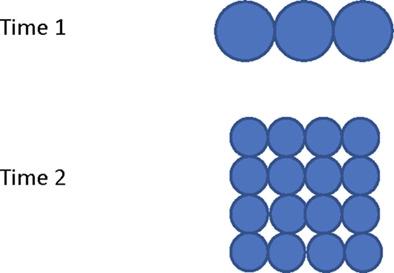当前位置:
X-MOL 学术
›
WIREs Clim. Chang.
›
论文详情
Our official English website, www.x-mol.net, welcomes your
feedback! (Note: you will need to create a separate account there.)
The rebound effect and the challenge of moving beyond fossil fuels: A review of empirical and theoretical research
WIREs Climate Change ( IF 9.4 ) Pub Date : 2022-05-09 , DOI: 10.1002/wcc.782 Richard York 1 , Lazarus Adua 2 , Brett Clark 2
WIREs Climate Change ( IF 9.4 ) Pub Date : 2022-05-09 , DOI: 10.1002/wcc.782 Richard York 1 , Lazarus Adua 2 , Brett Clark 2
Affiliation

|
William Stanley Jevons identified what has come to be known as the Jevons paradox: the observation that improvements in energy efficiency are often connected with rising, not falling, energy consumption. This insight informs the subsequent economic concept of the “rebound effect” and the expansive research investigating this relationship. We provide an overview of key empirical research, which establishes that large rebounds in energy consumption connected with rising energy efficiency are common across various units of analysis, including the national, subnational (e.g., states/provinces/cities; power plants), and household levels. We then focus on the range of theoretical arguments that have been put forward to explain why rebounds occur in varying contexts, with particular consideration of implications for efforts to move away from fossil fuels. We emphasize the important distinction between direct effects, indirect effects, and economy-wide effects in regard to rebounds, particularly those connected with macro-structural forces, for understanding the causes and implications of the Jevons paradox.
中文翻译:

超越化石燃料的反弹效应和挑战:实证和理论研究综述
威廉·斯坦利·杰文斯 (William Stanley Jevons) 发现了后来被称为杰文斯悖论的现象:能源效率的提高通常与能源效率的提高有关。,不跌,耗能。这种洞察力为随后的“反弹效应”经济概念和调查这种关系的广泛研究提供了依据。我们提供了关键实证研究的概述,这些研究表明,与能源效率提高相关的能源消耗大幅反弹在不同的分析单位中很常见,包括国家、地方(例如,州/省/城市;发电厂)和家庭水平。然后,我们关注已经提出的一系列理论论据,以解释为什么在不同的情况下会出现反弹,并特别考虑了对摆脱化石燃料的努力的影响。我们强调在反弹方面的直接影响、间接影响和整体经济影响之间的重要区别,
更新日期:2022-05-09
中文翻译:

超越化石燃料的反弹效应和挑战:实证和理论研究综述
威廉·斯坦利·杰文斯 (William Stanley Jevons) 发现了后来被称为杰文斯悖论的现象:能源效率的提高通常与能源效率的提高有关。,不跌,耗能。这种洞察力为随后的“反弹效应”经济概念和调查这种关系的广泛研究提供了依据。我们提供了关键实证研究的概述,这些研究表明,与能源效率提高相关的能源消耗大幅反弹在不同的分析单位中很常见,包括国家、地方(例如,州/省/城市;发电厂)和家庭水平。然后,我们关注已经提出的一系列理论论据,以解释为什么在不同的情况下会出现反弹,并特别考虑了对摆脱化石燃料的努力的影响。我们强调在反弹方面的直接影响、间接影响和整体经济影响之间的重要区别,











































 京公网安备 11010802027423号
京公网安备 11010802027423号